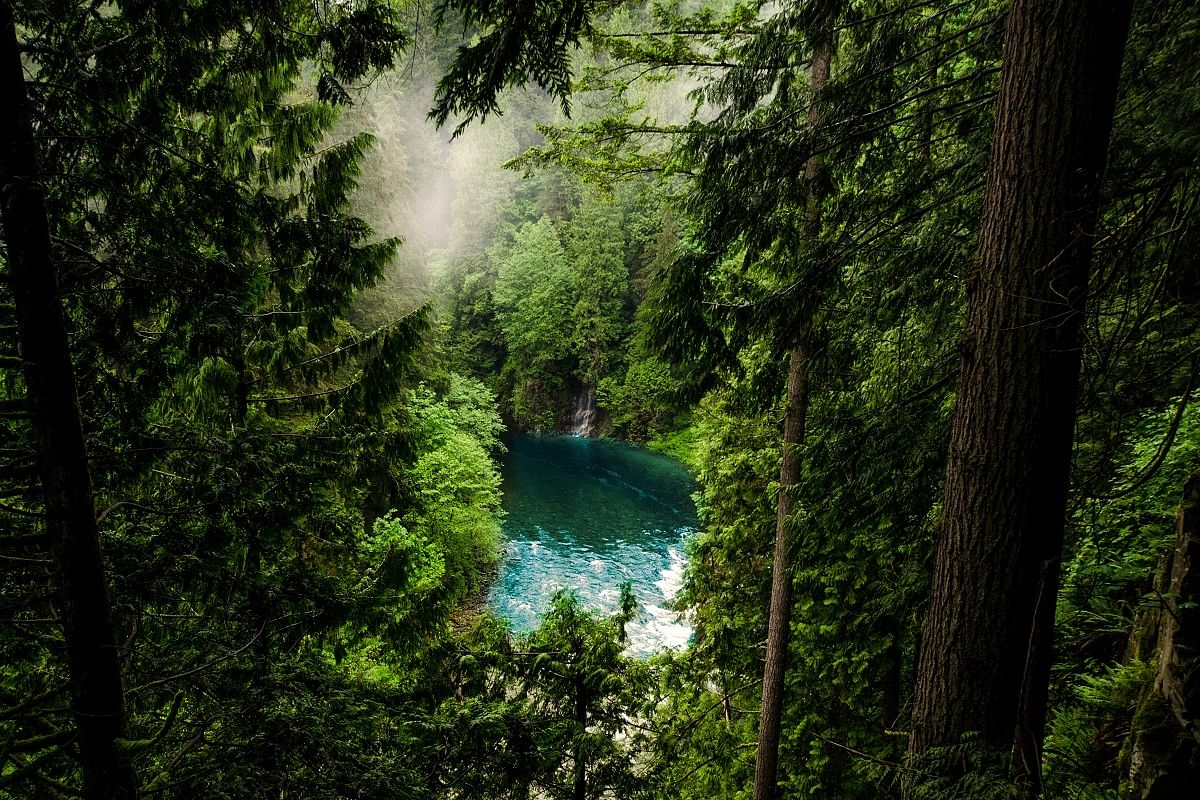
Rainforest Day 2023: Rainforests are expansive, dense forests characterized by heavy rainfall and high humidity. They are primarily found in tropical regions near the equator, such as the Amazon Basin, the Congo Basin, and Southeast Asia. These majestic ecosystems are home to over half of the world's plant and animal species, despite covering just 6% of the Earth's surface.
The Amazon rainforest, for instance, is the largest rainforest in the world, boasting unparalleled biodiversity. It houses countless species of plants, insects, birds, mammals, and reptiles, many of which are endemic and found nowhere else on Earth. Rainforests also provide a habitat for indigenous communities whose rich cultures and traditional knowledge are deeply intertwined with these ecosystems.
Importance of Rainforests: The Lungs of the Earth
Rainforests play a crucial role in maintaining the balance of our planet's ecosystems and climate. Here are some key reasons why rainforests are essential:
1. Climate Regulation: Rainforests absorb vast amounts of carbon dioxide and release oxygen through photosynthesis, helping to regulate the Earth's climate. They act as a significant carbon sink, mitigating the effects of greenhouse gas emissions and combating climate change.
2. Biodiversity Hotspots: Rainforests are treasure troves of biodiversity, providing habitat to millions of species. Protecting rainforests is vital for preserving the delicate balance of our planet's ecosystems and ensuring the survival of countless plant and animal species.
3. Water Cycle Regulation: Rainforests help regulate the water cycle by absorbing rainfall, reducing the risk of floods, and releasing water gradually into rivers and streams. They also act as natural filters, purifying water and preventing soil erosion.
4. Medicinal Resources: Many plant species found in rainforests have incredible medicinal properties and have been used for centuries in traditional medicine. Rainforest plants are a source of potentially life-saving drugs and hold promise for future medical breakthroughs.
Threats to Rainforests: Urgent Conservation Needs
Despite their immense ecological and cultural significance, rainforests face numerous threats that jeopardize their existence. Some of the most pressing challenges include:
1. Deforestation: Unsustainable logging practices, expansion of agriculture, illegal mining, and infrastructure development pose severe threats to rainforests. Deforestation not only destroys precious habitats but also releases large amounts of carbon dioxide into the atmosphere.
2. Climate Change: Rising temperatures, altered rainfall patterns, and increased frequency of extreme weather events linked to climate change impact rainforests. These changes can disrupt the delicate balance of ecosystems, leading to species loss and ecological collapse.
3. Illegal Wildlife Trade: Rainforests are home to diverse and unique wildlife, making them targets for illegal wildlife trafficking. Animals are often captured and traded for their exotic skins, body parts, or pets, driving many species towards extinction.
4. Indigenous Rights: Many indigenous communities residing in rainforest areas face the threat of displacement, loss of cultural heritage, and exploitation. Protecting their rights and empowering them as custodians of the rainforests is crucial for long-term conservation efforts.

Preserving Rainforests: Our Collective Responsibility
The preservation of rainforests requires collective action on various fronts. Here are some ways we can contribute to protecting these invaluable ecosystems:
1. Support Sustainable Practices: Choose sustainably sourced products and materials, such as timber, palm oil, and soy. Look for certification labels like the Forest Stewardship Council (FSC) or Rainforest Alliance to ensure responsible production.
2. Reduce Deforestation Footprint: Adopt a plant-based or low-meat diet to decrease the demand for land-intensive agricultural practices that contribute to deforestation. Reduce paper and wood consumption and recycle whenever possible.
3. Advocate for Conservation: Support organizations and initiatives dedicated to rainforest preservation. Raise awareness about the importance of rainforests among friends, family, and local communities, encouraging them to take action.
4. Responsible Tourism: If you have the opportunity to visit a rainforest, make sure you choose responsible tour operators that prioritize sustainable practices and contribute to local conservation efforts.
5. Support Indigenous Communities: Recognize and respect the rights of indigenous communities who have lived in harmony with rainforests for generations. Support fair trade initiatives that provide economic opportunities for indigenous groups and help preserve their cultural heritage.
Rainforests are irreplaceable ecosystems that hold immense value for the planet and future generations. On Rainforest Day and every other day, let us come together to protect these majestic forests. By raising awareness, taking sustainable actions, and supporting conservation efforts, we can ensure the preservation of rainforests, safeguard biodiversity, mitigate climate change, and secure a sustainable future for all.











